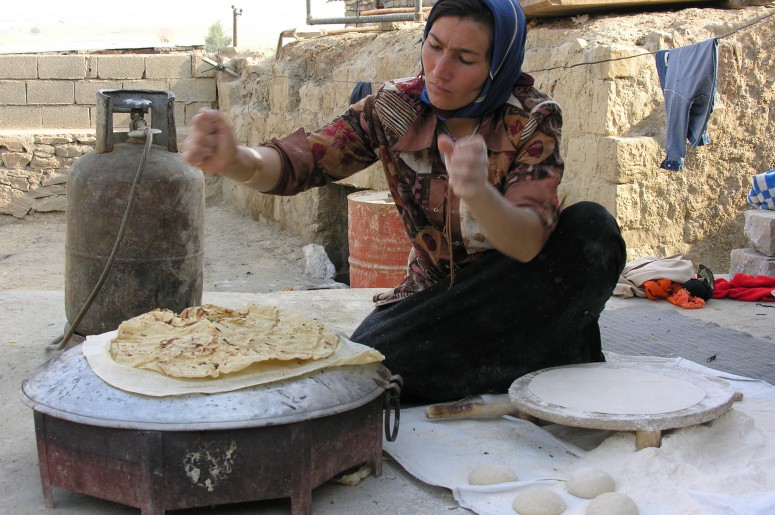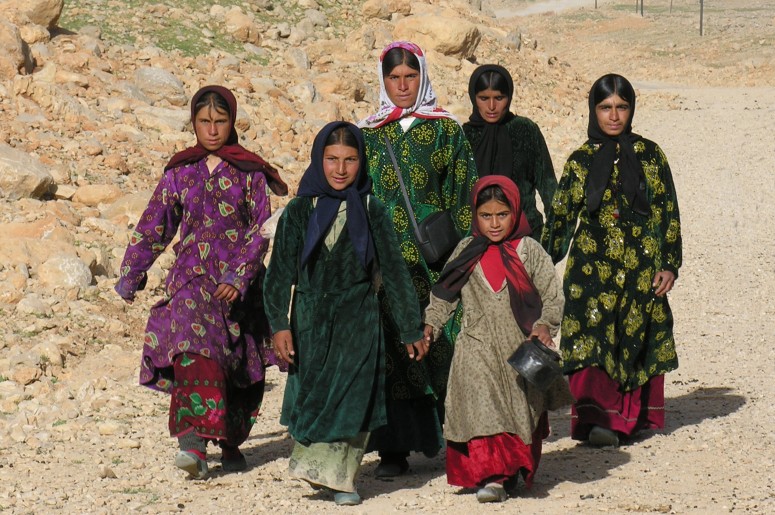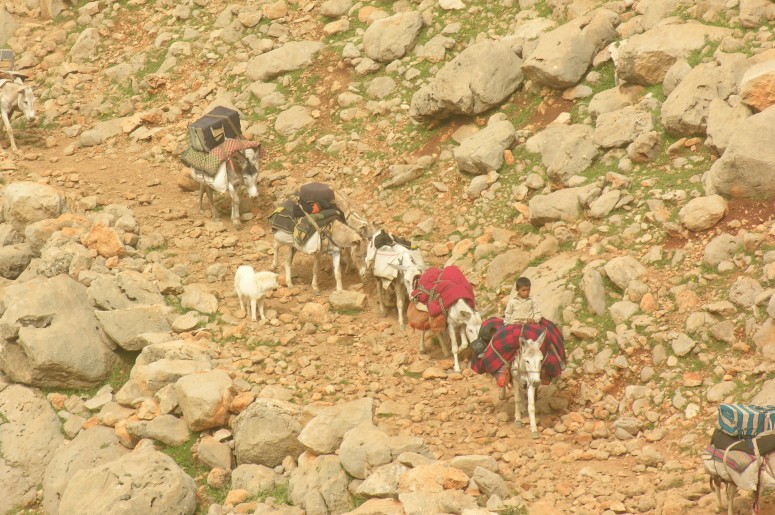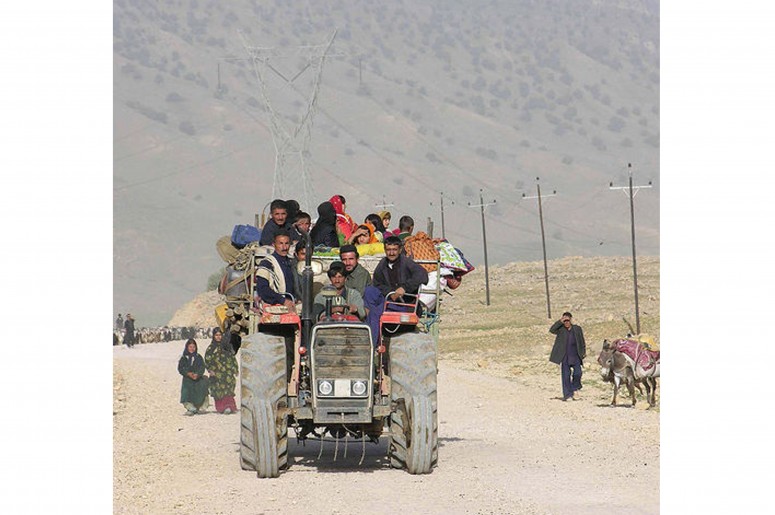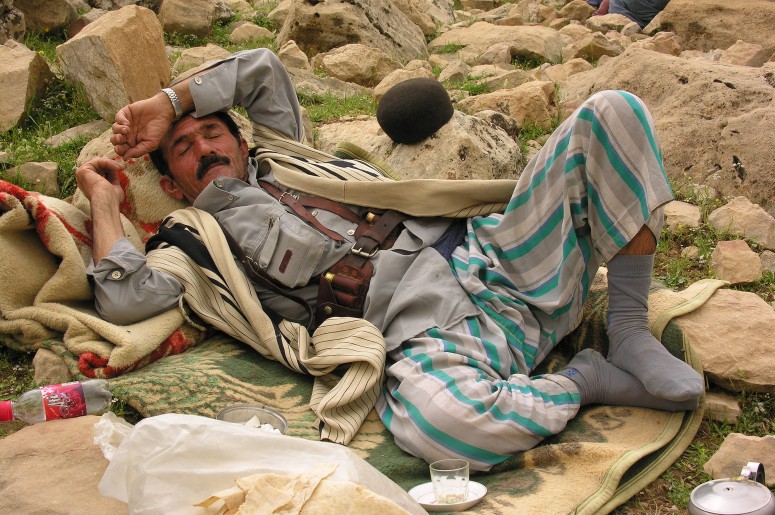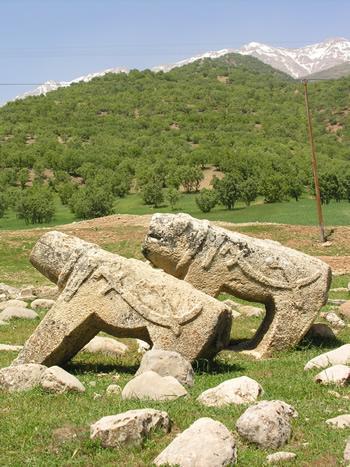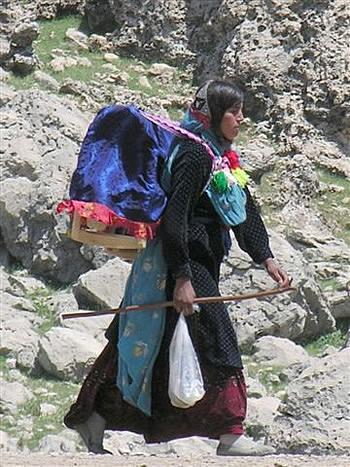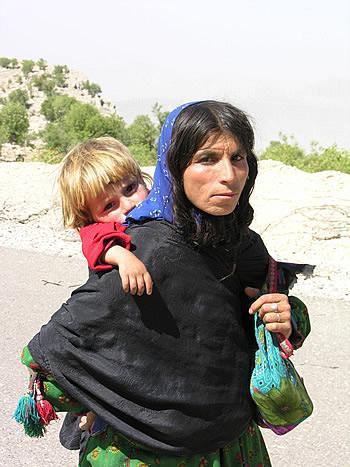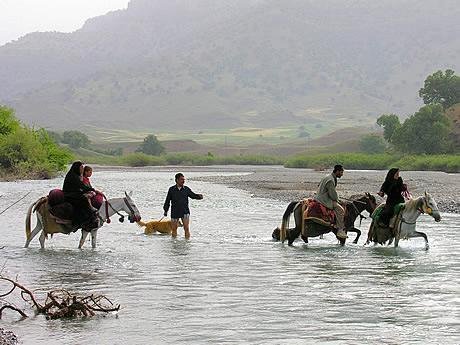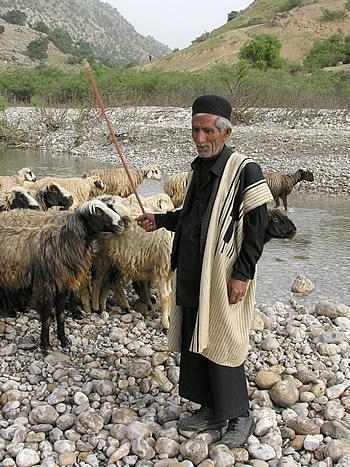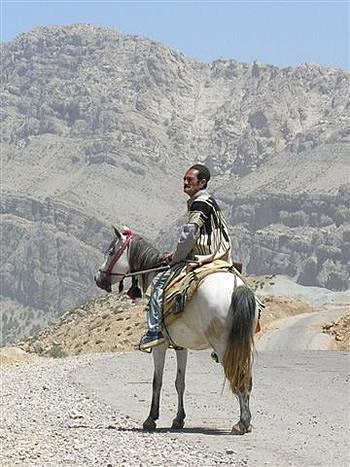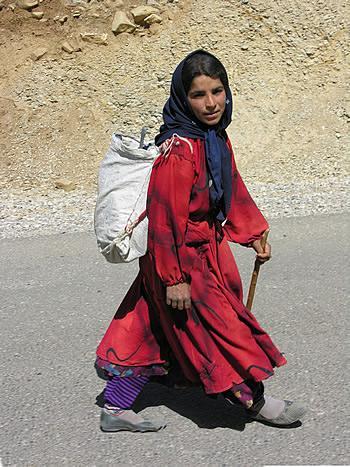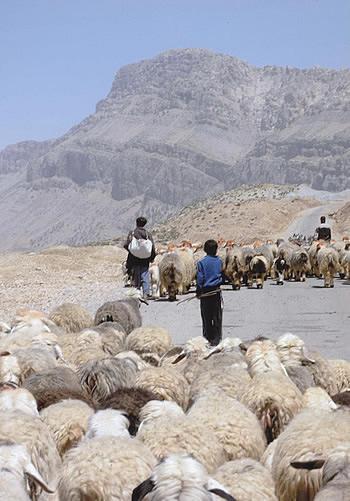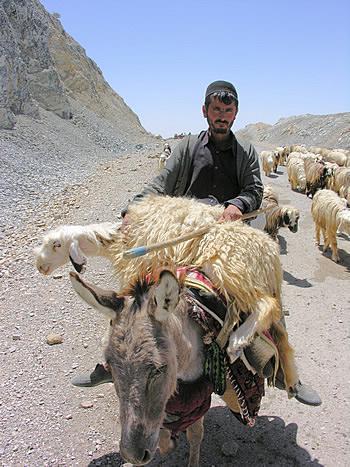Bakhtiari
I decided to walk the Bakhtiari twice-yearly migration over the Zagros mountains after seeing the 1926 film, Grass. My photos of Bakhtiari life were shown at SOAS in 2008; along with some much earlier images – recognising that it was on Bakhtiari land that Middle East oil was first found; and the tribe invaded Tehran in 1909.
Walking the Migration
Stone lions are the traditional grave-markers for the bravest of Bakhtiari warriors – these are in Chahar Mahal, at the western end of the migration, with the mountains we have walked over behind us.
Walking the Migration
New mothers are the only people the family groups do not wait for – breastfeeding women must stop to feed, and then hurry to catch up later. The babies always stay, or are put back into, the cribs for breastfeeding. In our walking group, Khanom-Gol had given birth to Qader, her first baby, only seven …
Walking the Migration
As we came towards the end of the migration, everyone was getting tired. Blonde children are surprisingly common among the Bakhtiari, and this little one stood no chance of keeping up with his mum if she didn’t carry him – I had to run alongside to take this photo.
Walking the Migration
The Bakhtiari traditionally tied inflated goatskins to animals and people to help them over the largest rivers. Now, some bridges have been built, although we still walked through the shallower waters.
Walking the Migration
Between the Zagros mountain ranges are riverine areas. Here, Terasi is helping part of the flock cross a small stream.
Walking the Migration
The Zagros consist of parallel ranges of mountains about as high as the Alps. You have to walk right up and then right down all of them on the migration – but that hardly seems to matter, since on the tops it’s like you can see the whole world below and around you.
Walking the Migration
This unmarried woman is walking fast. Notice her light plastic shoes – my walking boots were ridiculed as too heavy to be practical.
Walking the Migration
We were in a ‘flock jam’ here. With only one pass over the highest mountains, all the families are forced to converge from their many grazing paths. Of course, on a road, the stock can’t feed so everyone tries to move on as fast as possible.
Walking the Migration
The sheep and goats walk with the shepherds, and are usually separate from the donkeys, horses and women. Animals who break legs on the steep and rocky ground, however, are carried for perhaps half a day; then splinted with a handy stick and made to walk – although they will be given extra fodder and …
